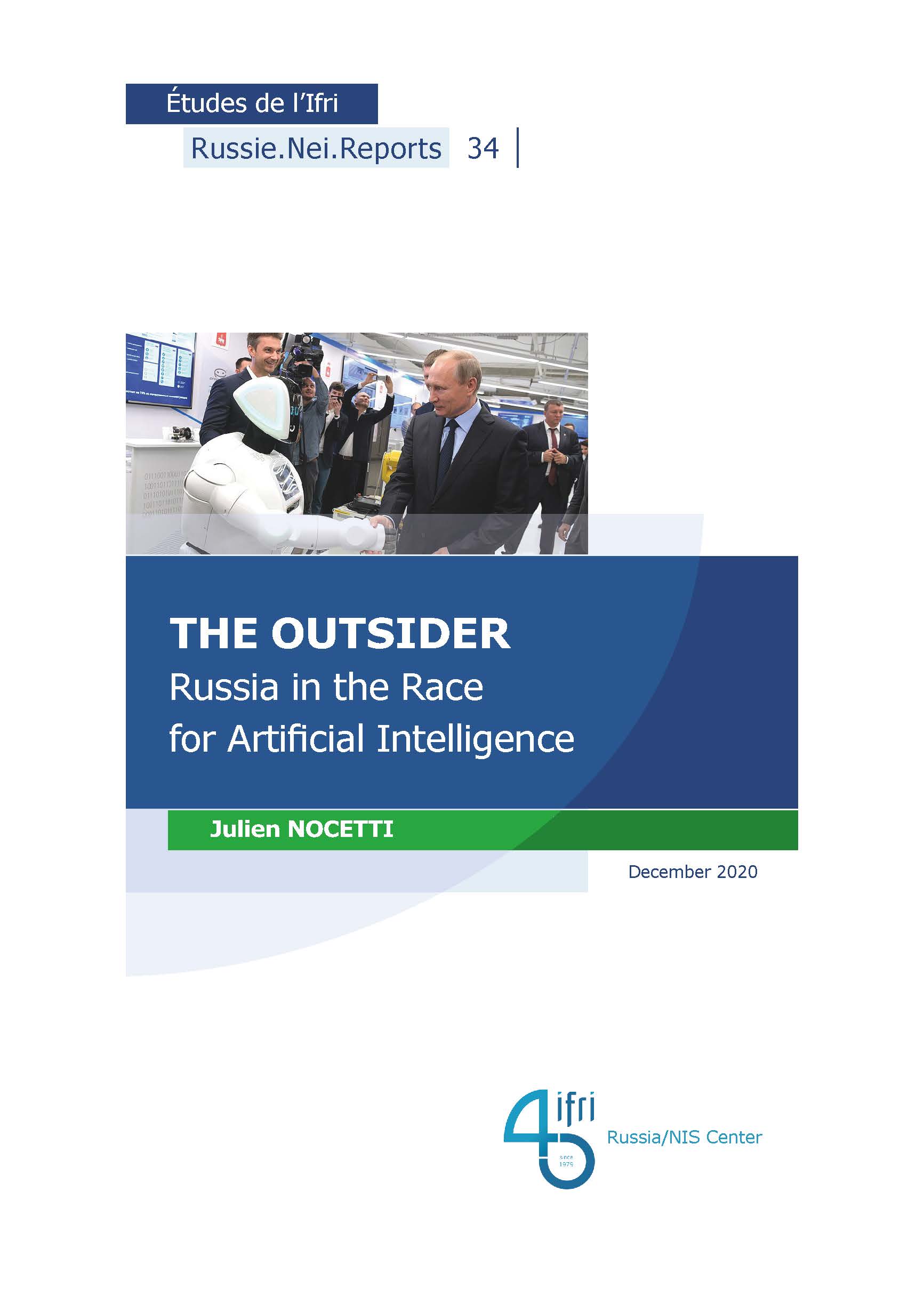The Outsider: Russia in the Race for Artificial Intelligence

When analyzing the global state of play around artificial intelligence (AI), Russia so far looks like an “outsider” compared to the two technological leaders, the United States and China.
Yet, like the European Union, Russia exhibits two apparently contradictory but fundamental trends: it is trying to reap the benefits of technological interdependence—digital, scientific, financial etc.—while also protecting its internal market and thereby achieving the “technological sovereignty” it so ardently desires. Russia’s state-led approach is compounded by the same problems that afflict Russia in the conventional digital sector: lack of investment, weak integration into international scientific and normative networks, political pressure on private companies, dependence on global technological value chains and brain drain. Might these factors lead us to underestimate Moscow’s potential in AI? This paper argues that although these weaknesses are significant, continue to hold Russia back and threaten to amplify pre-existing asymmetries of power with the United States and China, Moscow intends to preserve niches of expertise that it can deploy in foreign policy and domestic governance. The Russian authorities have also handed big parts of AI development to the armed forces and the defense industry, as part of modernization plans and for asymmetric use.
Julien Nocetti is an associate fellow at the French Institute of International Relations (Ifri) and a lecturer at Saint-Cyr Coëtquidan Military Academy. He is also a member of the GEODE research center (Géopolitique de la Datasphère—University of Paris VIII), and heads the Cyber Risk Governance chair at Rennes School of Business.
Download the full analysis
This page contains only a summary of our work. If you would like to have access to all the information from our research on the subject, you can download the full version in PDF format.
The Outsider: Russia in the Race for Artificial Intelligence
Related centers and programs
Discover our other research centers and programsFind out more
Discover all our analysesRussia, the Palestinians and Gaza: Adjustments after October 7th
The Soviet Union (USSR), and subsequently the Russian Federation as its internationally recognized legal successor, has consistently sought to play a visible role in efforts to resolve the Israeli-Palestinian conflict.
Deathonomics: The Social, Political, and Economic Costs of War in Russia
The report attempts to outline and examine a truly new phenomenon in Russian society, dubbed “deathonomics”—the making of a mercenary army against the backdrop of the Kremlin’s war in Ukraine, eventually replacing both the Soviet (conscript) and early new Russian (contract) armies. It notes that, by the end of 2023, this trend had turned the military service into one of the highest-paying professions in the country, something not seen in Russia on such a scale since the late 17th century.
Russia's Asia Strategy: Bolstering the Eagle's Eastern Wing
Among Russia’s strategic priorities, Asia traditionally played a secondary role compared to the West. In the mid-1990s, then Foreign Minister Yevgeny Primakov initiated a rapprochement with China and India. Then, in 2014, deteriorating relations between Russia and the West prompted Moscow to begin its “great pivot to the East”.
Kazakhstan After the Double Shock of 2022: Political, Economic and Military Consequences
The year 2022 represented a dual shock for Kazakhstan. In January, the country faced its most severe political crisis since independence, followed in February by Russia’s full-scale invasion of Ukraine, which cast uncertainty over the borders of post-Soviet states. These consecutive crises profoundly shaped Kazakhstan’s domestic and foreign policy.














